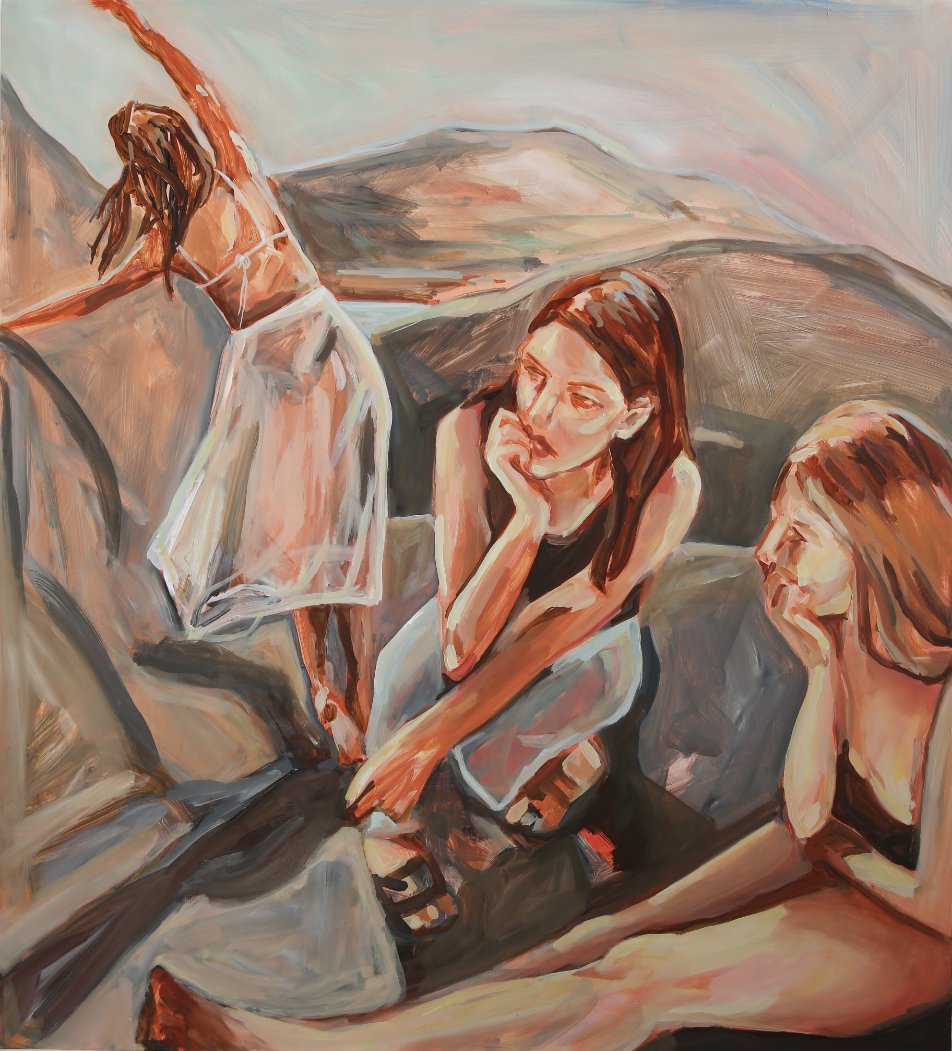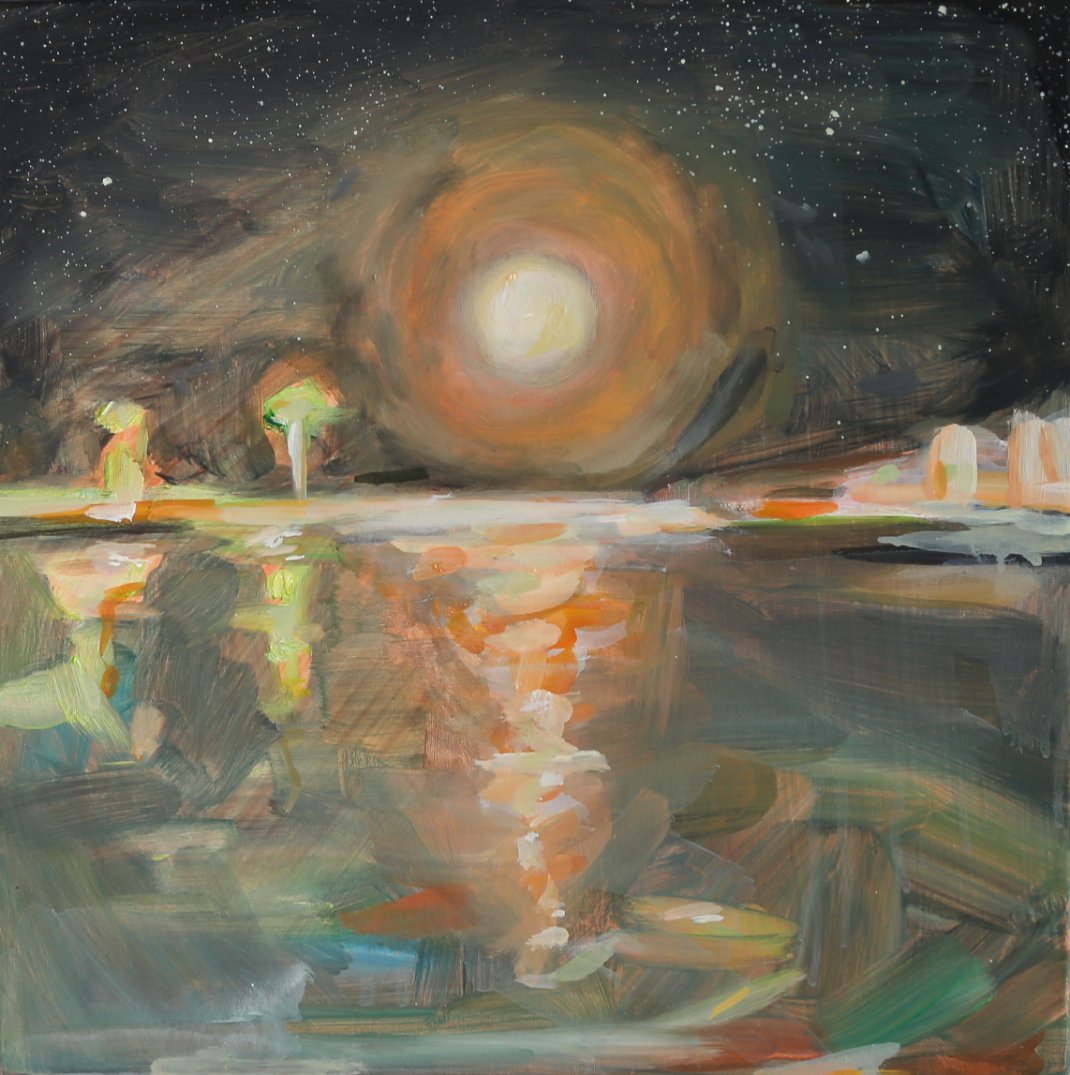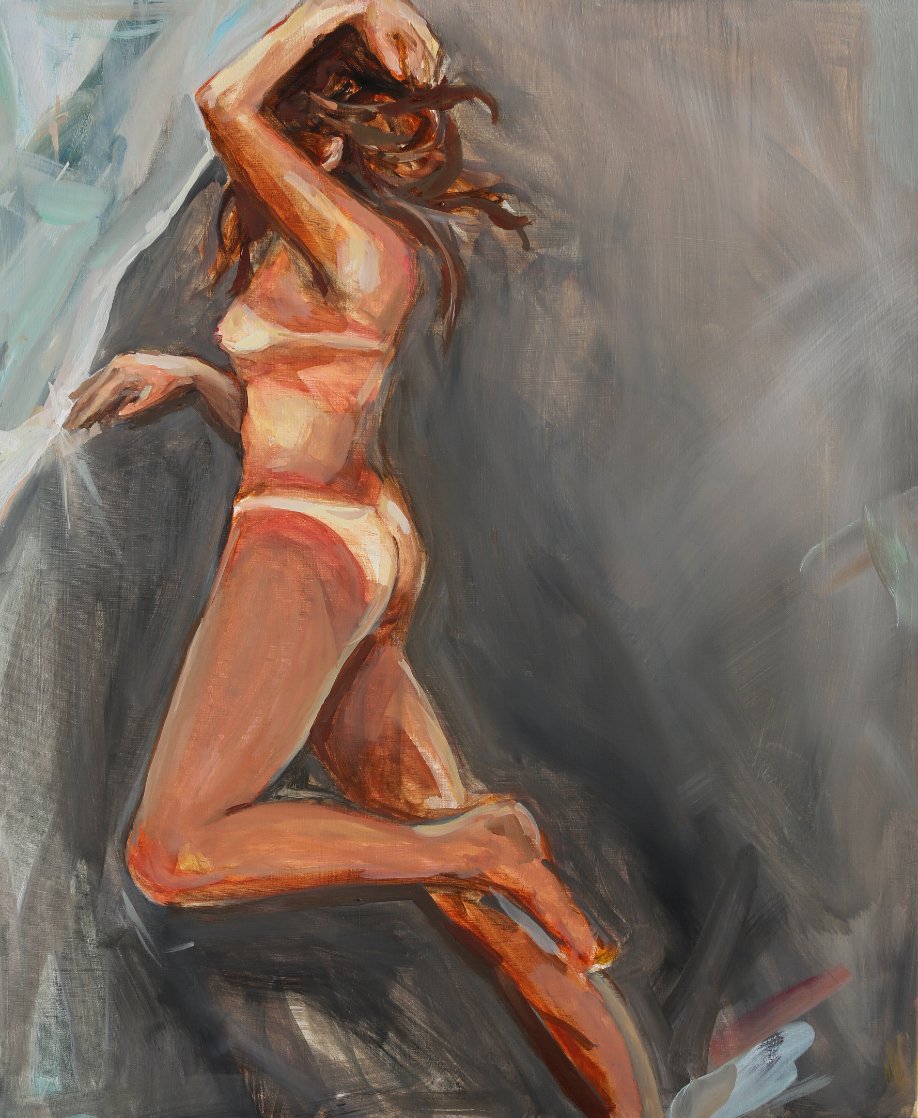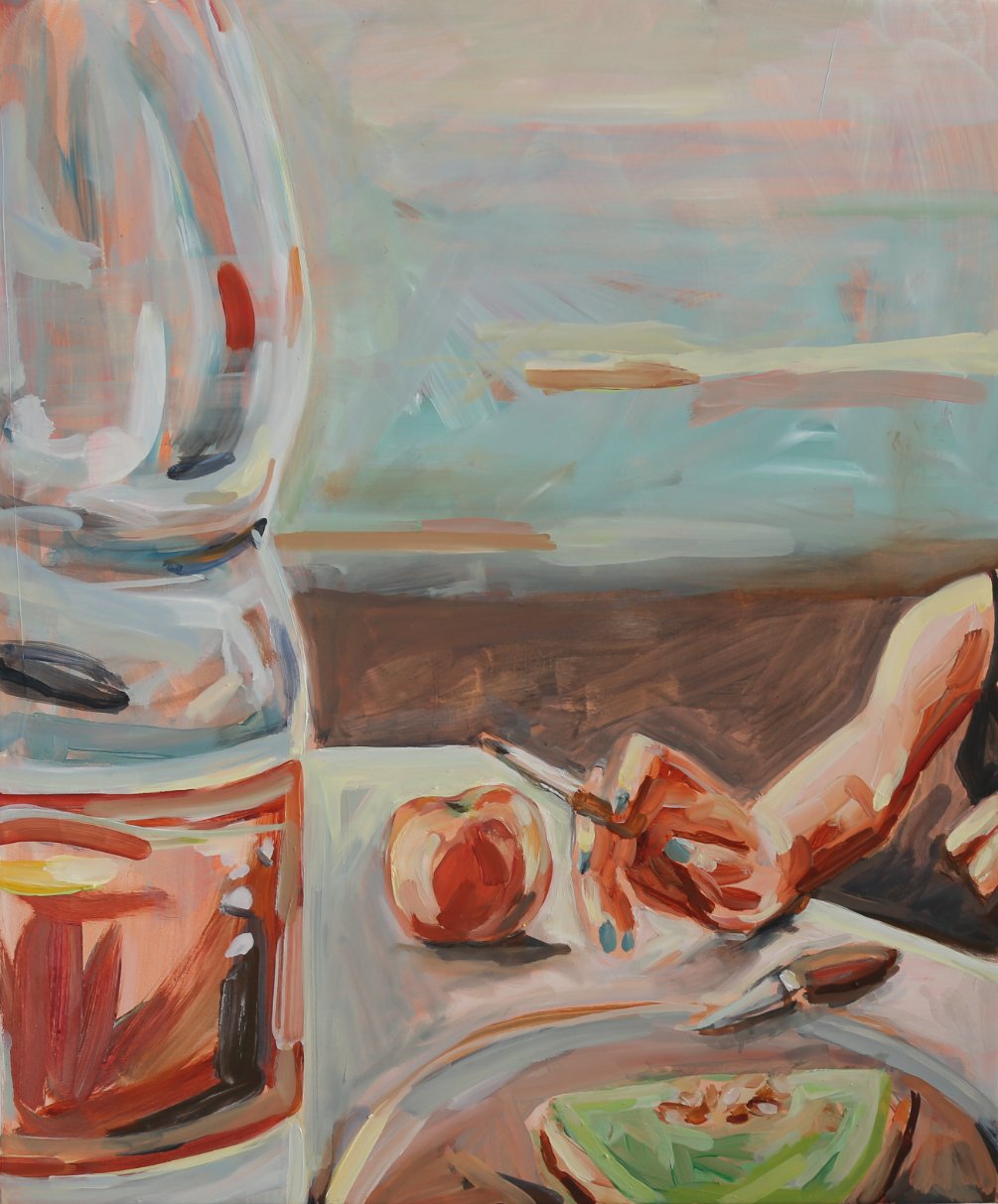Katikía presents Precipice, an inaugural residency exhibition of LA-based artist Avery Wheless. The exhibition was completed during the artist’s time in Monemvasia, Greece. Kicking off in Athens, Wheless explored ancient Greek art history and uncovered the emerging contemporary art scene within the capital's numerous galleries and artist studios. While creating her own body of work, Wheless produced an art curriculum that she taught at the town's local public elementary school. She worked with students and introduced them to a new approach to painting. The exhibition will be displayed in a historical seaside ruin built into the cliffs along the Castro—a medieval town—for the residents and visitors of Monemvasia to view.
The movement of bodies in Wheless’s energetic and tender paintings originate from Wheless’s history with dance, particularly ballet. Delicate movements command power and space while exploring the complexities of personal and social impacts of the female form.
“My works are often a reflection on how I relate to others. They explore how I see myself and take up space, finding comfortability while often feeling exposed and vulnerable. In this residency, I have experienced what it means to be removed, but also present in an unfamiliar environment. While observing people, I interact and engage, but also have an extra level of outsiderness as a viewer. It's been interesting to be seen by new people in a new place, while taking in new information, colors, landscapes and attitudes. There is also an obvious part of me which feels removed from those at home. I have been extremely aware of the precipice of transition that I feel myself in. Unsure of what is next while experiencing what I am unaccustomed to. I am grateful for a fresh space and place of unknown to explore. I have been processing a mix of reverence and grief of letting go and acknowledging the beauty of reconnecting with myself."
Precipice celebrates being vulnerable within a new environment. Many of the paintings are from scenes I have experienced here. Whether food, people, colors or landscape, I have pulled from my surroundings as an observer. Some works I have painted myself into. In these pieces I am involved, yet removed. The resulting images celebrate and mourn the capacity to hold and be held. They are a processing of what it means to exist within my body while acknowledging there is a falling apart while simultaneously being held together--thinking about how this relates to water and its capacity to suppress, but also buoy. How water allows us to float and be supported while touching everything and nothing at once. These works allow an openness to magic and spiritual awareness that is easy to find when things are fresh and new.”
Precipice is on view by appointment through August at Katikía







